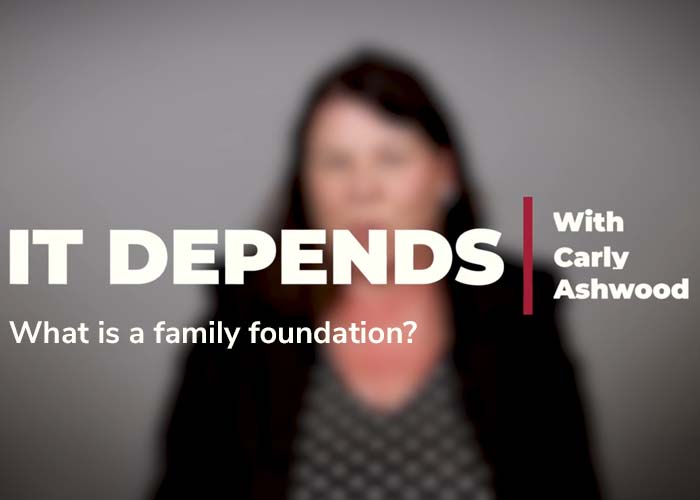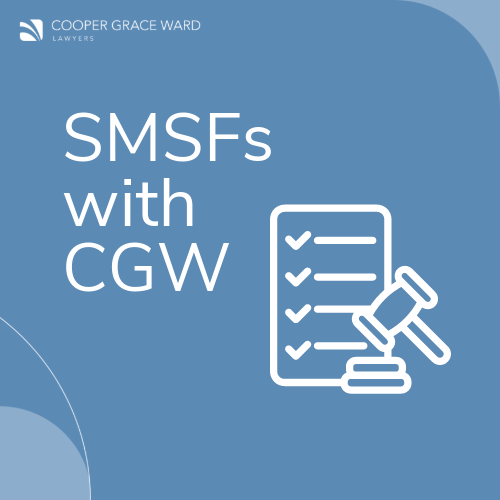In this edition of It depends, special counsel Carly Ashwood continues our Not-for-profit and charities legal 101 series with an overview of family foundations.
Video Transcript
Welcome to this video in our Not for-profit and Charities Legal 101 series. I’m Carly Ashwood, special counsel in the corporate advisory team here at Cooper Grace Ward Lawyers.
Today, I’ll be running through some of the questions we get from clients when they are looking to establish a family foundation.
What is a family foundation?
From a legal perspective, a family foundation is not defined. However, it is commonly understood to be a separate structure that a family utilises to hold funds and then donate for philanthropic purposes. Because it doesn’t have an exact definition at law, the legal structure is flexible.
How is a family foundation structured?
Commonly, the driver for the legal structure of a family foundation is the Australian taxation laws. Commonly, a family foundation is structured as a charitable trust, company, or other incorporated structure. Whether the family foundation is itself exempt from paying income tax and whether donors of money or goods can claim a tax deduction for their donation to the family foundation will depend on the legal structure, the tax status, and the charities and individuals that the family foundation supports. Generally speaking, the most tax effective structure for a family foundation that wishes to hold funds donated to it and donate those to other charities that are deductible gift recipients, is an ancillary fund.
What are ancillary funds?
Ancillary funds are a creature of tax law and are a channel by which money or property is donated to other charities that are endorsed by the ATO as deductible gift recipients. Ancillary funds also allow families to claim a tax deduction for their donation in the financial year that they make that donation, but hold those funds for a larger or longer term project. Ancillary funds also allow families to have the next generation involved in the family’s philanthropy. Private ancillary funds are generally an attractive structure for family philanthropy because they are a private fund that is exempt from tax, they can provide the donor to the fund with a tax deduction for money or property that is donated, and they generally have the same tax status as registered charities. There are numerous requirements in order for a structure to qualify as an ancillary fund, and it will need one or more independent people to be actively involved in the administration of the fund. There are also two types of ancillary funds: a private ancillary fund and a public ancillary fund. There are few differences between the two, but the main difference is that a public ancillary fund is required to fundraise.
Are there ways for family foundations that are not ancillary funds to have DGR status?
It depends. A family can establish its own charity with activities and purposes aligned with the values of the family. Family philanthropy can sometimes also be achieved tax effectively through an existing or newly established family trust. This is done by making distributions from the trust to charities and income tax exempt entities. Another common example of structuring family philanthropy is through a testamentary trust in a Will that comes into existence on the death of the testator. If you have any questions about family foundations or structuring your philanthropy, please feel free to contact me. Please also tune in for our other videos in our Not-for-profit and Charities Legal 101 series. Thank you.





